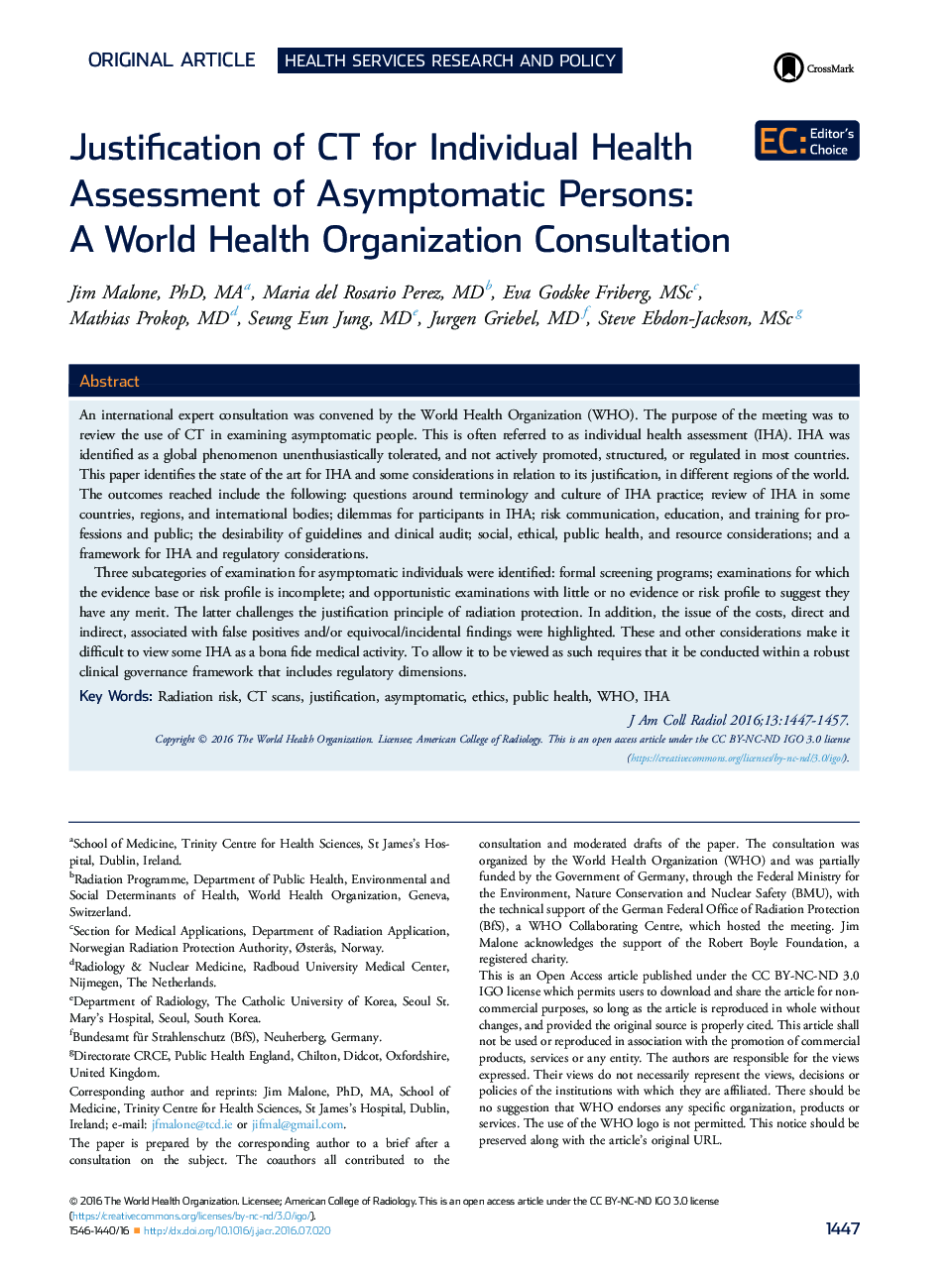| Article ID | Journal | Published Year | Pages | File Type |
|---|---|---|---|---|
| 5726586 | Journal of the American College of Radiology | 2016 | 12 Pages |
An international expert consultation was convened by the World Health Organization (WHO). The purpose of the meeting was to review the use of CT in examining asymptomatic people. This is often referred to as individual health assessment (IHA). IHA was identified as a global phenomenon unenthusiastically tolerated, and not actively promoted, structured, or regulated in most countries. This paper identifies the state of the art for IHA and some considerations in relation to its justification, in different regions of the world. The outcomes reached include the following: questions around terminology and culture of IHA practice; review of IHA in some countries, regions, and international bodies; dilemmas for participants in IHA; risk communication, education, and training for professions and public; the desirability of guidelines and clinical audit; social, ethical, public health, and resource considerations; and a framework for IHA and regulatory considerations.Three subcategories of examination for asymptomatic individuals were identified: formal screening programs; examinations for which the evidence base or risk profile is incomplete; and opportunistic examinations with little or no evidence or risk profile to suggest they have any merit. The latter challenges the justification principle of radiation protection. In addition, the issue of the costs, direct and indirect, associated with false positives and/or equivocal/incidental findings were highlighted. These and other considerations make it difficult to view some IHA as a bona fide medical activity. To allow it to be viewed as such requires that it be conducted within a robust clinical governance framework that includes regulatory dimensions.
